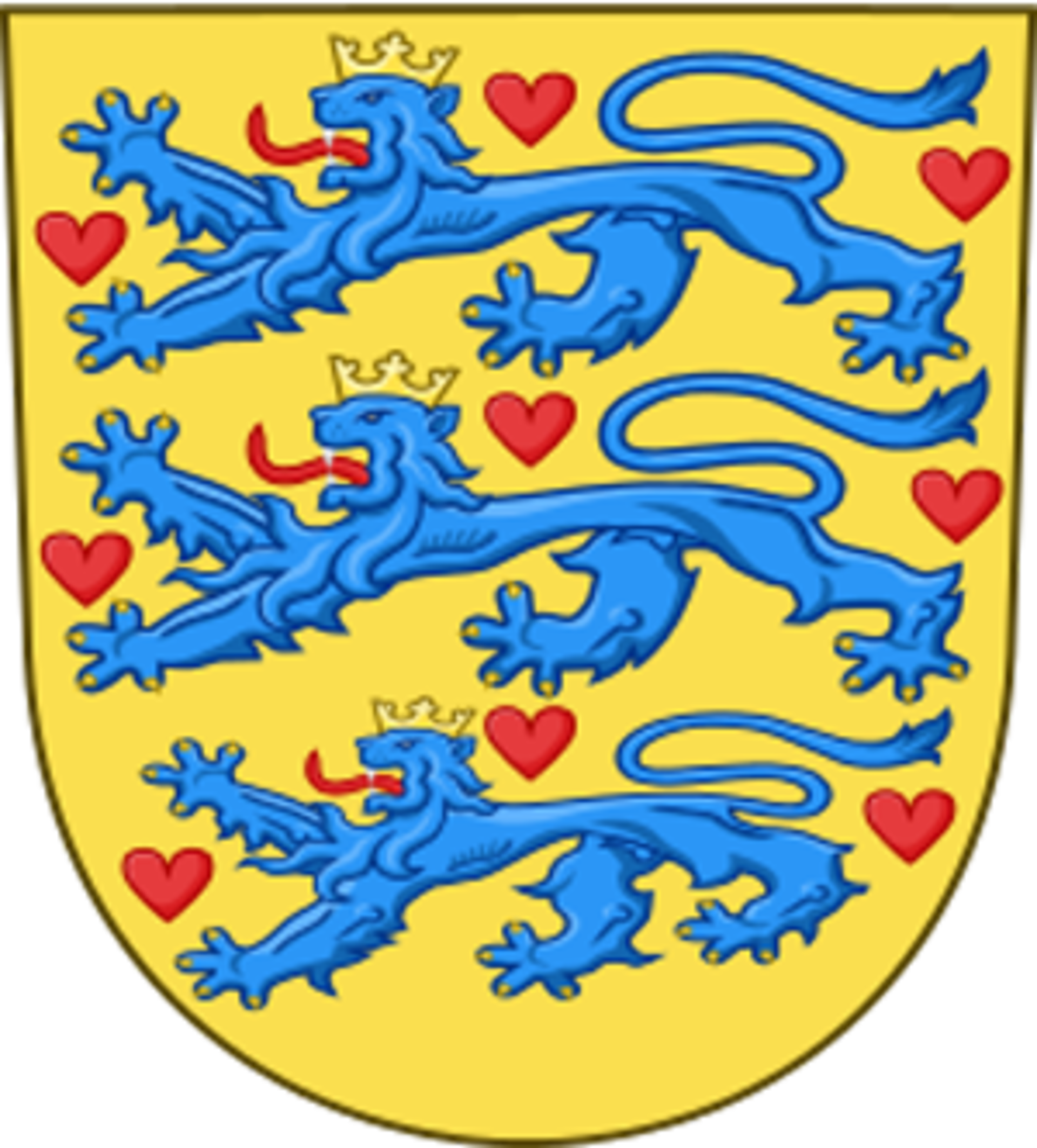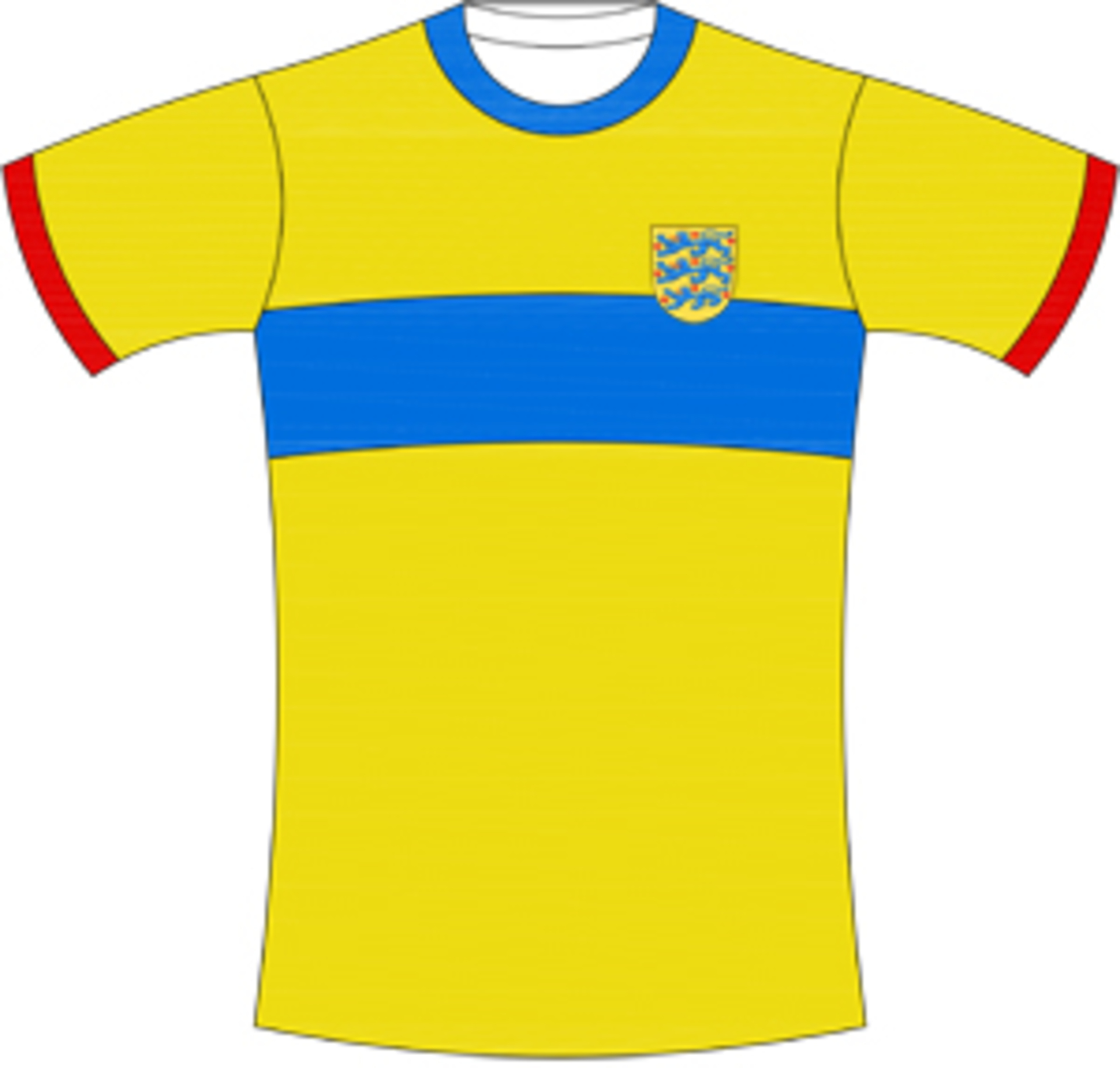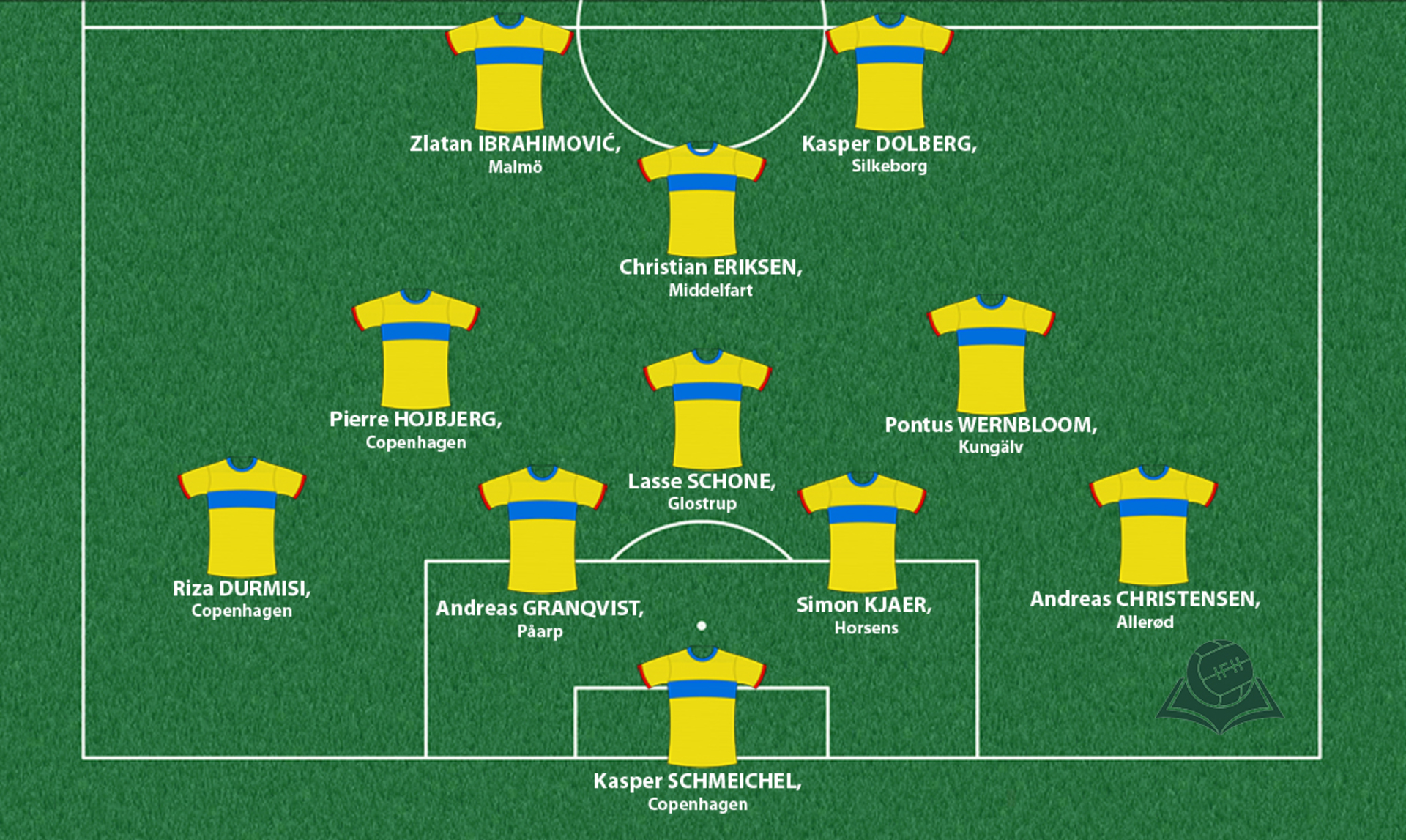The Kingdom of Denmark
Most of the High Middle Ages the Danish Kingdom spread from the Iceland on the west to the eastern Baltic coast. The Core of that state were the Jutland Peninsula the Danish islands, and the region Scania on the southern Scandinavian Peninsula.

Coat of arms

Shirt
| Position | First name | Last name | Mjesto rođenja | Like | Dislike | |
|---|---|---|---|---|---|---|
| GK | Jonas | LOSSL | Kolding |
0 |
0 |
|
| GK | Kasper | SCHMEICHEL | Copenhagen |
21 |
1 |
|
| GK | Robin | OLSEN | Malmö |
0 |
0 |
|
| DC | Andreas | GRANQVIST | Påarp |
0 |
0 |
|
| DC | Erik | SVIATCHENKO | Viborg |
0 |
0 |
|
| DC | Frederik | SORENSEN | Copenhagen |
0 |
0 |
|
| DC | Jannik | VESTERGAARD | Copenhagen |
1 |
0 |
|
| DC | Pontus | JANSSON | Arlöv |
2 |
0 |
|
| DC | Simon | KJAER | Horsens |
1 |
0 |
|
| DRC | Andres | CHRISTENSEN | Allerød |
6 |
1 |
|
| DLC | Hordur | MAGNUSSON | Reykjavík |
0 |
0 |
|
| DRL | Jens | STRYGER LARSEN | Sakskøbing |
0 |
0 |
|
| DRL | Martin | LINNES | Sander |
0 |
0 |
|
| DRL | Rasmus | CHRISTENSEN | Brande |
0 |
0 |
|
| DR | Emil | SALOMONSSON | Örkelljunga |
1 |
0 |
|
| DR | Peter | ANKERSEN | Esbjerg |
0 |
0 |
|
| DL | Riza | DURMISI | Ishøj |
0 |
0 |
|
| DMC | Lasse | SCHöNE | Glostrup |
3 |
0 |
|
| DMC | William | KVIST | Rønde |
2 |
0 |
|
| MC | Markus | HENRIKSEN | Trondheim |
0 |
0 |
|
| MC | Oscar | LEWICKI | Malmö |
0 |
0 |
|
| MC | Pierre | HOJBJERG | Copenhagen |
4 |
0 |
|
| MC | Pontus | WERNBLOOM | Kungälv |
2 |
0 |
|
| MLC | Thomas | DELANEY | Frederiksberg |
3 |
0 |
|
| AMC | Christian | ERIKSEN | Middelfart |
11 |
2 |
|
| AMRLC | Daniel | WASS | Gladsaxe |
2 |
0 |
|
| AMLC | Valon | BERISHA | Malmö |
0 |
0 |
|
| AMRL | Emre | MOR | Brönshöj |
4 |
1 |
|
| FRLC | Joshua | KING | Oslo |
1 |
0 |
|
| FRLC | Martin | BRAITHWATE | Esbjerg |
0 |
0 |
|
| FRLC | Viktor | FISCHER | Aarhus |
4 |
0 |
|
| FRLC | Yussuf | POULSEN | Copenhagen |
4 |
0 |
|
| FC | Andreas | CORNELIUS | Copenhagen |
1 |
0 |
|
| FC | Kasper | DOLBERG | Silkeborg |
5 |
1 |
|
| FC | Markus | ROSENBERG | Malmö |
0 |
0 |
|
| FC | Nicolai | JORGENSEN | Fredericia |
1 |
0 |
|
| FC | Zlatan | IBRAHIMOVIĆ | Malmö |
19 |
4 |
(Today part of: Denmark, southern Sweden)
At the beginning of the 13th century, the King of Denmark gained control over the coast from the river Elbe to the Oder, and at the east coast of the Baltic Sea over the city of Ravel (Tallinn), which will remain the site of conflict between the powerful states that surround it, due to its favorable trade position on the route from Scandinavia towards the East. However, the Danish influence in the Baltics will soon start to diminish with the rise of Hansa, the Counts of Holstein, and the Teutonic Order. The latter will become the foremost rivals of the Danes in the forceful Christianization of the Baltic pagan tribes, which they used as an excuse for claiming territories and the subduing of the local populace – the Prussians, Livonians, Finns, Estonians, and others. The Teutonic Order (Teuten-German) moved from the Holy Land in the service of the Holy Roman Emperor to the shores of the Baltic Sea at the beginning of the 13th century, where they founded their own state. In the next century, they will conquer eastern Pomerania with Gdansk, and push Poland away from the Baltic, which instigated a hundred and fifty year period of attempts to liberate these areas.
The German colonization of the coastal cities stimulated the foundation of the Hanseatic League or Hansa – the association of merchants from the northern parts of the Holy Roman Empire (Lübeck, Hamburg, Bremen, Rostock, and others), which put their efforts together to secure the shipping lanes on the important trade route between the Baltic and the North Sea. The cause for the formation of such a league was to weaken the state’s (emperor’s) authority, which could no longer guarantee safety for the merchants. A series of Danish defeats at the hands of the Teutonic Order and Hansa will lead to the loss of all the conquered areas during the 13th century. From those days on, Danish kings focused their efforts on local issues. They introduced changes in the organization of the feudal system, and the yeomanry lost their traditional rights and privileges, which they had held since the Viking era. Nevertheless, the king continued to have difficulties maintaining control of the state due to the strong opposition in the form of the Church and the nobility.
Sources
- Michal TYMOWSKI, Kratka povijest Poljske,Zagreb, 1999.
- ''Denmark: High Middle Ages'', https://www.britannica.com/place/Denmark/The-High-Middle-Ages
- ''Hanza'', http://www.enciklopedija.hr/Natuknica.aspx?ID=24349
- ''History of Denmark'', https://en.wikipedia.org/wiki/History_of_Denmark#Christianity.2C_expansion_and_the_establishment_of_the_Kingdom_of_Denmark
- ''Tallin'', https://hr.wikipedia.org/wiki/Tallinn#Povijest
- Coat of Arms: https://en.wikipedia.org/wiki/House_of_Estridsen
